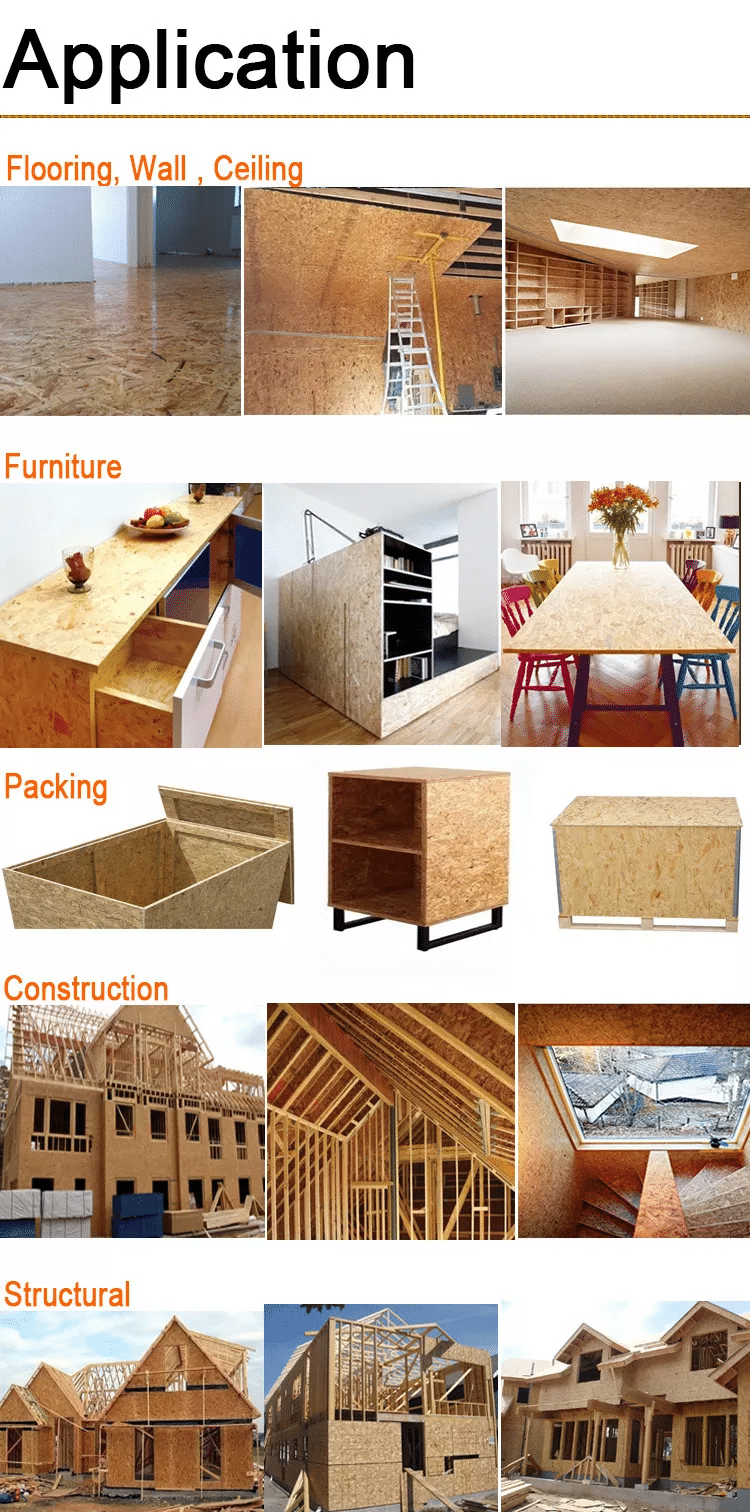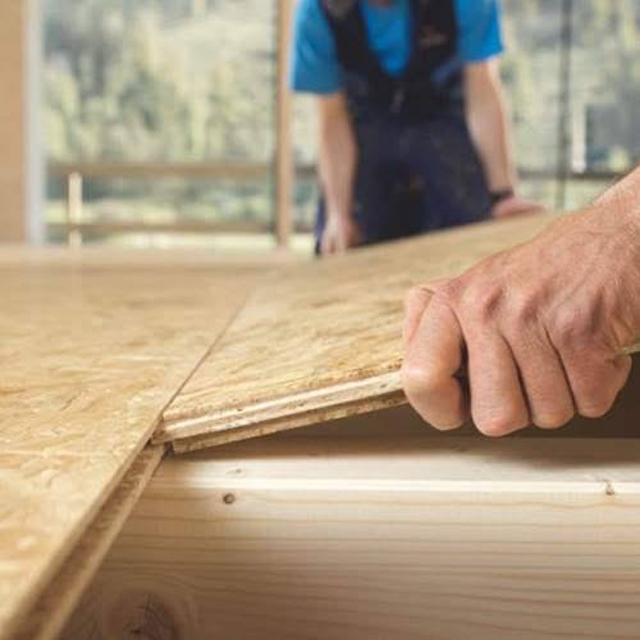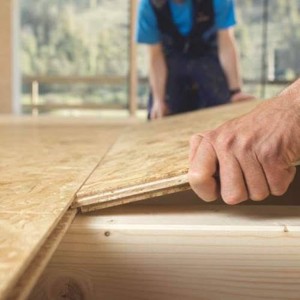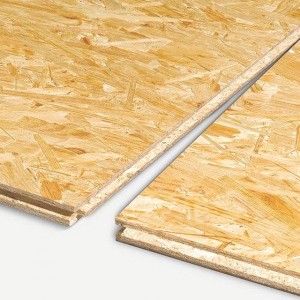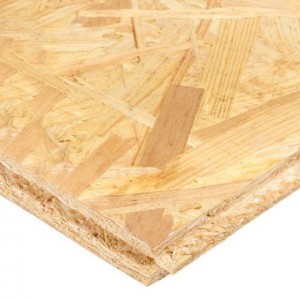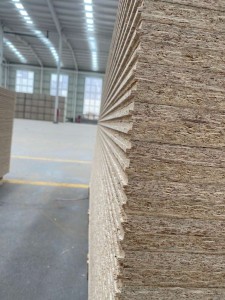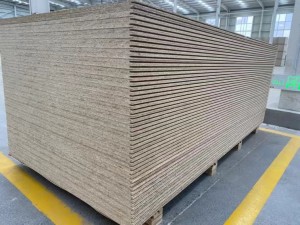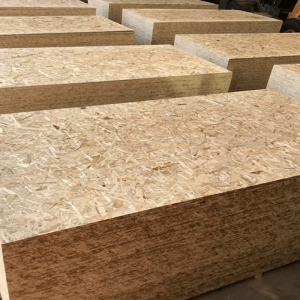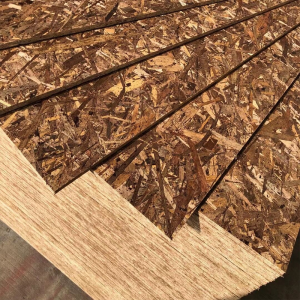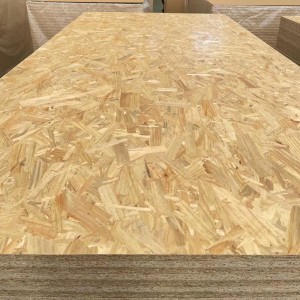T&G OSB Board Tongue-and-Groove ORIENTED STRAND BOARD
| OSB3& OSB2 Size | 1220mmx2440mm, (Customized Size) |
| Thickness | 15mm, 18mm,21mm |
| Core | Poplar, Pine, Eucalyptus |
| Glue | MR E2 E1 E0 ENF PMDI WBP Melamine Phenolic |
T&G OSB (Oriented strand board) is the upgrading of the traditional particleboard products,its mechanical properties with directionality, durability, moisture resistance, and dimensional stability than ordinary particleboard.With a small expansion coefficient, no distortion, good stability, uniform material and nail holding high performance.
Oriented strand board (OSB), also known as flakeboard, sterling board and appetite in British English, is a type of engineered wood similar to particle board, formed by adding adhesives and then compressing layers of wood strands (flakes) in specific orientations. It was invented by Armin Elmendorf in California in 1963.
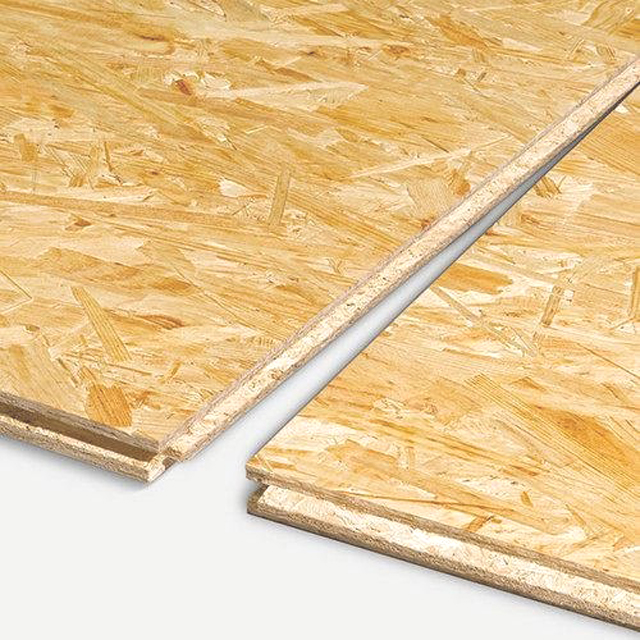
Advantages
1) Tight construction and high strength;
2) Minimum twisting, delamination or warping;
3) Water proof, consistent when exposed in the natural or wet environment;
4) Low formaldehyde emission;
5) Good nailing strength, easy to be sawn, nailed, drilled, grooved, planed, filed or polished;
7) Good heat and sound resistant, easy to be coated;
8) Note the OSB3 is for use on flat roof situtaions, a far better product than standard chipboard or particleboard.
OSB is widely used as a structural wood panel for floors (including subfloors and underlays), walls and ceilings. It is used for interior fittings, furniture, shuttering and packaging and also in the manufacture of I-joists, where it forms the web or support between two flanges of solid wood. OSB is being used not only for its structural properties but also for its aesthetic value, with some designers using it as an interior design feature .
